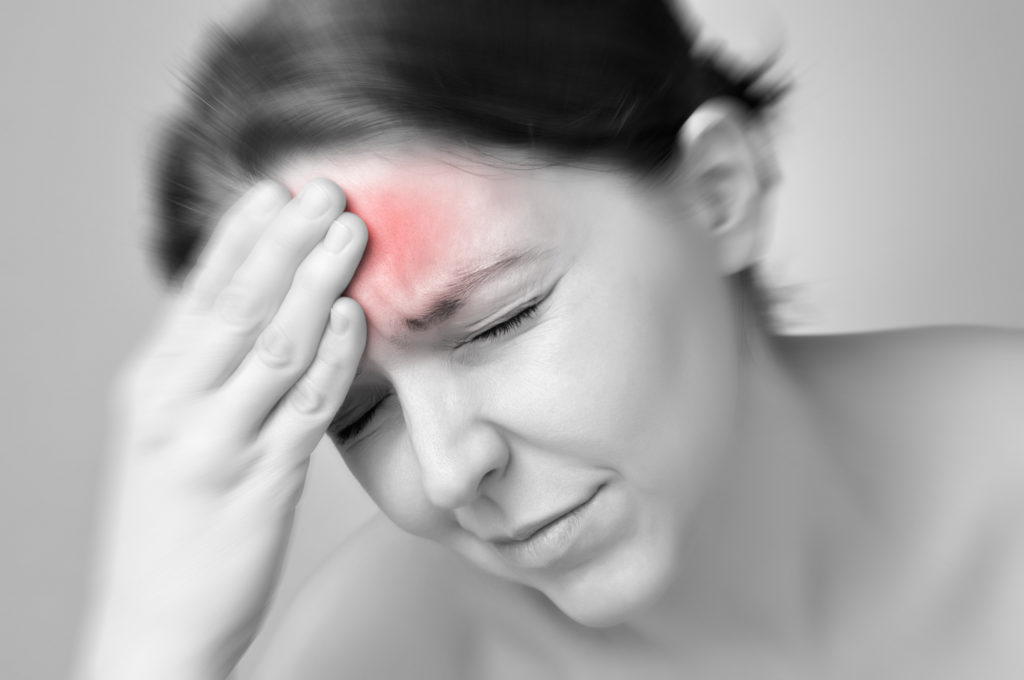
Millions of Americans deal with headaches every day, and for some, they always seem to occur in the morning right after they wake up or when they are feeling particularly tired. Studies have shown that headaches and sleep have an interdependent relationship, as headaches are two to eight times more common in those with sleep disorders.
If this sounds familiar to you, you might be interested to learn more about the connection between headaches and sleep, a few disorders that display these symptoms and solutions for both painful headaches and poor rest.
Types of Headaches
Migraines
It is estimated that more than 38 million people in the U.S. suffer from migraines. Lasting anywhere between two and 72 hours and causing symptoms such as nausea, vomiting, and a sensitivity to light, sound, or smell, migraines are severe and debilitating for the sufferer.
Interestingly, both a lack of sleep and excessive sleep can trigger migraines. According to the National Sleep Foundation, 50% of migraines occur between 4 a.m. and 9 a.m., and 80% of regular migraine sufferers wake up still feeling tired. Chronically waking up with a migraine could be the sign of a sleep disorder, such as insomnia or sleep apnea. Migraines sufferers are also more likely to be depressed or anxious, making existing sleep issues worse.
Fortunately, on the other side of the coin, sleep can also help alleviate or even terminate a migraine attack.
Cluster Headaches
Another type of severe headache is a cluster headache, which occurs in patterns, or clusters, and is usually limited to one side of the head. Attacks typically manifest during sleep, which some experts believe may be due to the brain switching from REM sleep to a lighter stage of sleep, possibly indicating a connection between a person’s circadian rhythm (the sleep/wake cycle) and headaches. A sleep analysis can help determine if certain sleep habits are playing a role in the onset of cluster headaches.
Exploding Head Syndrome
Another headache phenomenon that has been associated with sleep issues is exploding head syndrome. This type of headache is a rare condition in which a person experiences unreal noises that are loud and short when falling asleep and waking up, such as the sound of a bomb exploding or other loud bang. Sufferers should consult a doctor for treatment, which may include medication or stress reduction.
Sleep Disorders & Headaches
Bruxism
One sleep disorder particularly linked with headaches is bruxism, a condition in which a person unconsciously clenches their jaw and grinds their teeth during sleep. It’s estimated that about 8% of adults have the disorder, often brought on by stress. It’s common for sufferers of bruxism to wake up with a morning headache.
Solutions for bruxism include:
- Improving sleep habits, such as falling asleep and waking up at the same time each day, creating a consistent wind-down routine, and avoiding electronics that emit blue light before bed
- Finding ways to de-stress throughout the day, such as exercise, journaling thoughts or meditation
- An oral appliance, which will stop grinding and relieve pressure on facial muscles and the jaw joint
It’s important to remember, however, that the best solution for bruxism will vary depending on the type and intensity of bruxism as well as the individual patient.
Insomnia
Insomnia and headaches also seem to be innately linked — and in fact, it is the most common complaint of those that suffer from frequent headaches. According to the American Headache Society, patients with chronic migraines (headaches that occur 15 or more days per month) report having almost twice the rates of insomnia as those with less frequent headaches.
Sleep Apnea
A common indicator of sleep apnea is waking up with a headache. In fact, at least 50% of those who regularly wake up in the morning with a headache may have sleep apnea. The disorder can be treated by a variety of methods depending on the type of apnea, its severity, and the age of the patient.
Treatment Options
Research shows that sleep disorders and chronic headaches have an absolute connection, and while we don’t yet know everything about how the two are linked, if you suffer from either condition, it’s a good idea to be evaluated by a specialist.
Sleep specialists like Dr. Jeff Rodgers can help determine the root cause of your sleep issues. To learn more about the connection between sleep and headaches, sleep apnea and how we can help you on the path to great sleep, contact us today for a free consultation.
